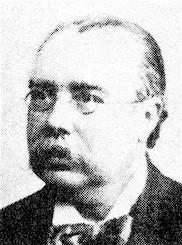
1761 - 1796 Scripture: Psalm 118:14 Author of "O Thou, in Whose Presence" in Hymns of Faith Swain, Joseph, was born at Birmingham in 1761, and after being apprenticed to an engraver, removed to London. After a time he became a decided Christian, and being of an emotional poetic temperament, began to give expression to his new thoughts and feelings in hymns. In 1783 he was baptized by the Rev. Dr. Rippon, and in 1791 became minister of a Baptist congregation in East Street, Walworth. After a short but popular and very useful ministry, he died April 16, 1796 Swain published the following:—
(1) A Collection of Poems on Several Occasions, London, 1781; (2) Redemption, a Poem in five Books, London, 1789; (3) Experimental Essays on Divine Subjects, London, 1791; (4) Walworth Hymns, by J. Swain, Pastor of the Baptist Church Meeting there, London, 1792, 129 hymns; with a Supplement, 1794, 192 hymns; (5) A Pocket Companion and Directory, London, 1794.
In addition to a limited number of Swain's hymns, annotated under their respective first lines, the following, from his Walworth Hymns1792, and the 2nd ed., 1796, are also in common use:—
1. Brethren, while we sojourn here. Mutual Encouragement.
2. Children of the King of grace. Holy Baptism.
3. Christ the Lord will come again. Second Advent.
4. Come, ye souls, by sin afflicted. The Yoke of Christ.
5. How sweet, how heavenly is the sight. Communion of Saints.
6. In expectation sweet. Second Advent.
7. Lift up your heads, ye gates. Ascension.
8. Love is the sweetest bud that blows. A Flower an Emblem of Christ.
9. 0 how the thought that I shall know. Heaven Anticipated. Sometimes it begins with st. ii., "For ever to behold Him shine".
10. On earth the song begins. Heaven Anticipated.
11. On the wings of faith upspringing. Passiontide.
12. Pilgrims we are to Canaan bound. Pilgrimage of Life.
13. Praise ye the Lord, the eternal King. Divinity of Christ.
14. Praise your Redeemer, praise His Name. Praise for Redemption.
15. 'Tis heaven begun below. Heaven Anticipated.
16. What is it for a saint to die? Death and Burial.
17. What must [will] it be to dwell above? Heaven Anticipated.
18. When firm I [we] stand on Zion's hill. Confidence. Sometimes as "I stand on Zion's mount," in American collections.
19. Who can forbear to sing? Praise of Jesus.
From his Redemption, a Poem in Five Books, 1791, the following hymns are also in common use:--
20. 0 Thou in whose presence my soul takes delight. In Affliction.
21. Ye daughters of Zion, declare, have you see? Comfort in Affliction.
Of these hymns the most widely known are Nos. 1, 5, 6, and 20. We may add that several of Swain's hymns appeared in The Theological Miscellany, 1784-1789. [Rev. W. R. Stevenson, M.A.]
-- John Julian, Dictionary of Hymnology (1907)
Joseph Swain



